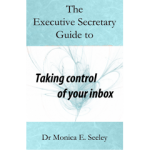These four themes dominated the press and social media over the last few weeks, what to and not to put in an email, the Clinton email scandal, our digital habits and whether or not email is dying.
Tags: corporate email overload, Hilary Clinton and Email, information overload, Millenials, Phubbing
In an attempt to reduce email overload, increasingly organisations are banning using email for internal communications. But is this really the solution or is it a sledge hammer to crack a nut? For some the ban is absolute and others it is on specific days. The most high profile being Atos. Others include Hatton Housing and Rarely Impossible ( a small Dorset-based digital media company). Those adopting this path have turned to alternative platforms such as instant messaging, social media-based chat environments. By and large too the companies have all been small to medium sized and based in one office. The exception is Atos but they are developing a dedicated internal communications platform.

Responses have been mixed, some have seen a genuine improvement in people’s performance whilst others have found drawbacks. Not least, employees are now just faced with another set of digital distraction.
There is no doubting that email overload and misuse is one of the biggest causes of stress and lower productivity, corporate email overload is often the symptom of deeper problems. Reducing email overload and generating genuine improvements in communications and performance is really about setting the right management and business culture. Then one can start to look at how email and the other multitude of social media platforms can be used.
Currently with so much uncertainty over Brexit, it is not surprising that many people’s inboxes are fuller than ever with unnecessary chatter. It would not therefore be unexpected if more business executives jumped on the ‘ban all internal email’ band wagon. However, without careful consideration as to what is really causing the email overload, banning all internal email might just be a step backwards.
Tags: Ban internal email, corporate email overload, email overload, Hatton House, Rarely Impossible
 Here are five articles which caught our eye over the last few weeks. It’s a mixed bunch including the importance of checking your junk folder from time to time, what constitutes a strong password and how to improve office communications by placing more emphasis on the human aspect of work. Click here for more.
Here are five articles which caught our eye over the last few weeks. It’s a mixed bunch including the importance of checking your junk folder from time to time, what constitutes a strong password and how to improve office communications by placing more emphasis on the human aspect of work. Click here for more.
1. Always check your junk folder (carefully) – Australian author Helen Garner was almost $207,000 out of pocket recently, when an email telling her she had won a new prize went straight to her junk folder. She naturally thought is was a hoax.
2. Emails reveal trading behaviour during crisis. The Libor scandal erupted nearly five years ago and yet still email evidence is emerging about how traders manipulated the markets. Although largely related to the financial aspects of Citibank’s troubles, this article underpins two fundamental principles. First, you never know what happens to an email once it leaves your inbox. You only have control over what you say not who does what with it. Second, email is a picture of you, a point Barclays Bank found to their horror.
3. Working human: after all, what’s the alternative? We spend more time at work and isolated in our blinkered world of email and social media than ever before. Some companies are now looking at ways to make work more enjoyable and increase the level of personal contact. This overview includes case histories.
4. Better password? Pretend you eat kale. Did you know that password built around the ‘I eat kale’ is significantly stronger than one built on ‘I love you’. Here is why and how to build on that philosophy to develop your own strong and robust passwords. Click here for more tips on this setting strong passwords to reduce cyber crime.
5. After hours email checking consumes a month a year. A recent US survey found that we now spend at least one hour of our own time checking office emails. There is little doubt the same behaviour persist in the UK. Indeed the French Government are considering legislation to banning access to work email after work hours.
Many of the challenges highlighted in these articles contribute to corporate email overload and hence drain you and your organisation’s productivity.
You will find some advice and tips on how to reduce the email stress levels in both ‘Brilliant Email‘ and ‘Taking Control of Your Inbox‘. And Mesmo Consultancy can always come and run a Brilliant Email workshop to help you and your organisation improve performance.
Tags: After hours email, Brilliant Email, corporate email overload, cyber crime, Junk Folder, Mesmo Consultancy, Passwords, Taking Control of Your Inbox
Three themes stood out over the past few weeks: the obvious one of new year’s resolutions and predictions; our skill or lack of it with the English language and of course the Court of Human Rights ruling in favour of an employer who monitored an employee’s personal emails.
2016 predictions and resolutions
 Set goals rather than resolutions. Did you set yourself up for failure just a week into the new year by setting a series of new year’s resolutions which within a week you had broken? Well it turns out that it is better to establish some SMART goals against which we can monitor our progress. It’s never too late to re-calibrate and set new goals.
Set goals rather than resolutions. Did you set yourself up for failure just a week into the new year by setting a series of new year’s resolutions which within a week you had broken? Well it turns out that it is better to establish some SMART goals against which we can monitor our progress. It’s never too late to re-calibrate and set new goals.How clearly do you communicate?
Monitoring employee’s personal emails
Tags: corporate email etiquette, corporate email overload, cyber crime, Lucy Kellaway, Mesmo Consultancy, SMART goals
What are the options to reducing email overload? Ferrari now limits employees from sending the same email to more than three people. Is this the best way to tackle email overload. Financial Times 9 July 2013.
Tags: corporate email etiquette, corporate email overload, email management training, email overload